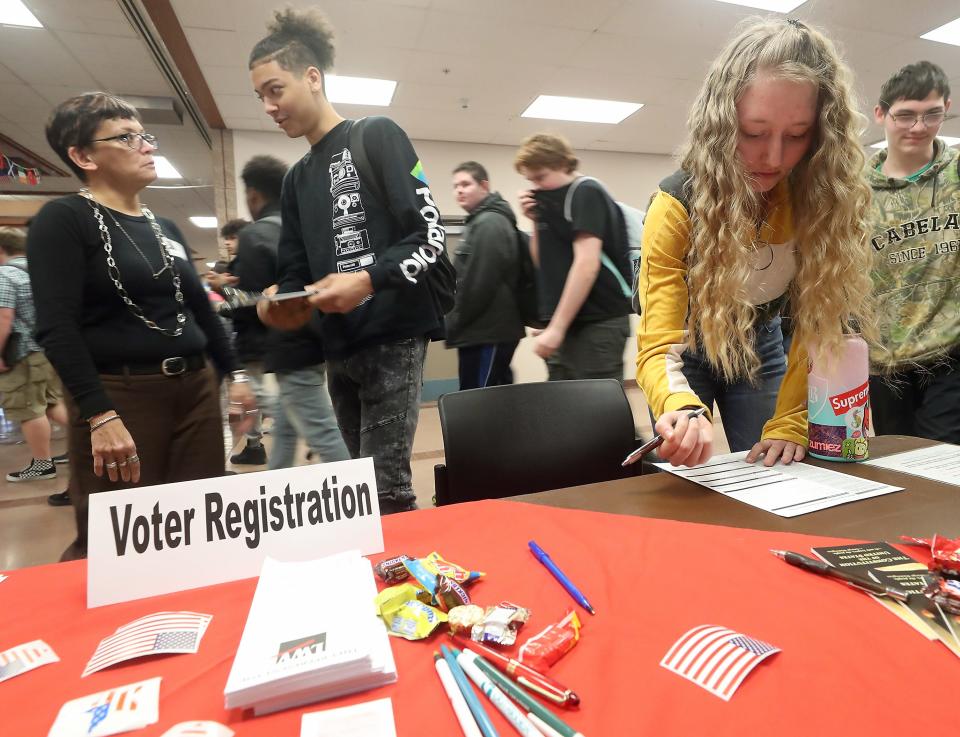Washington lawmakers move ahead in extending voting rights, encouraging turnout
EDITOR'S NOTE: This page is part of a comprehensive guide to voting rights across the U.S. and in Puerto Rico.
Voters in Washington state this November won't elect a Republican to the office that oversees elections for the first time since the mid-1960s, which is perhaps surprising in what's become a reliably blue electorate for statewide offices.
That GOP hold on the Secretary of State's office is somewhat due to the success of five consecutive Republicans in leading the state's elections system.
The Secretary of State's office has worked through several changes driven by voter initiatives to make voting simpler over the past two decades, largely focused on Washington's all-mail elections.
Immediate past Secretary of State Kim Wyman, a Republican who did not question the 2020 presidential election results, parlayed the trust earned over three terms in Washington's Capitol for a key election-security job in the Biden administration.
After Wyman's departure in October 2021, Democrat Steve Hobbs was named the interim successor and in Washington's Nov. 2 general election he's matched up against independent Julie Anderson, who's the auditor of the state's second-largest county, to fill the job through 2024.
Neither is campaigning on any major overhaul of the election system, but that doesn't mean there haven't been any recent changes.
Former felons regain voting rights in Washington in 2022
The most notable change for the fall campaign is voting rights for felons. Washington's legislature — already one of the nation's more progressive in terms of voting accessibility by offering vote-by-mail for several decades and instituting it for every voter in 2004 — restored voting rights for felons effective Jan. 1, 2022.
The law means every person with a past felony conviction who is not incarcerated at the time of voting immediately has their voting rights restored, and simply needs to register. The state's Department of Corrections estimates the change may affect as many as 20,000 voters now eligible to cast a ballot by mail this fall.
“While other states are restricting their right to vote, I’m glad that in Washington here, we’re expanding our access to democracy,” Gov. Jay Inslee said in a bill-signing event after the Legislature passed the bill in April 2021.
Washington adds more changes to increase voter turnout
The state's turnout in the August 2022 primary didn't soar with the change, though it follows other small tweaks in recent years to increase participation.
Those include spending money to add drop-boxes for ballots in some counties and dropping the postage required to mail a ballot in others. The changes also include the implementation in 2020 of a program that allows 16- and 17-year-olds to sign up and be added to the state registration database early, and in particular cases allowing 17-year-olds to vote in a presidential primary (the person must be 18 by the time of the general election to take advantage).

About 40% of the 5 million registered voters cast a ballot in the primary. That's expected to rise in the November general, with several close congressional races expected and enough competitive state legislative races to offer the GOP an opening to control one of Washington's two chambers.
This article originally appeared on Kitsap Sun: Washington expands voting access with felon voting, youth registration

